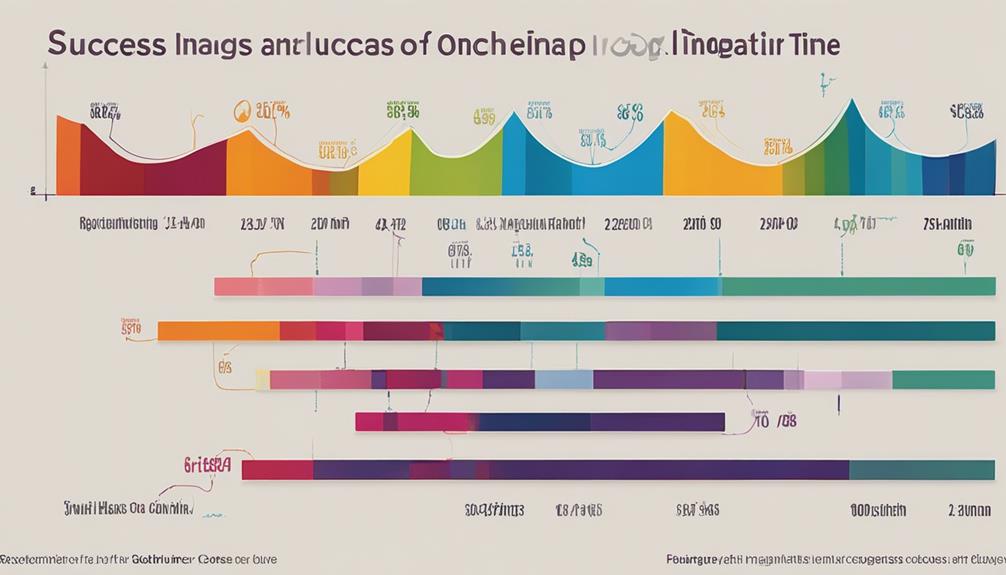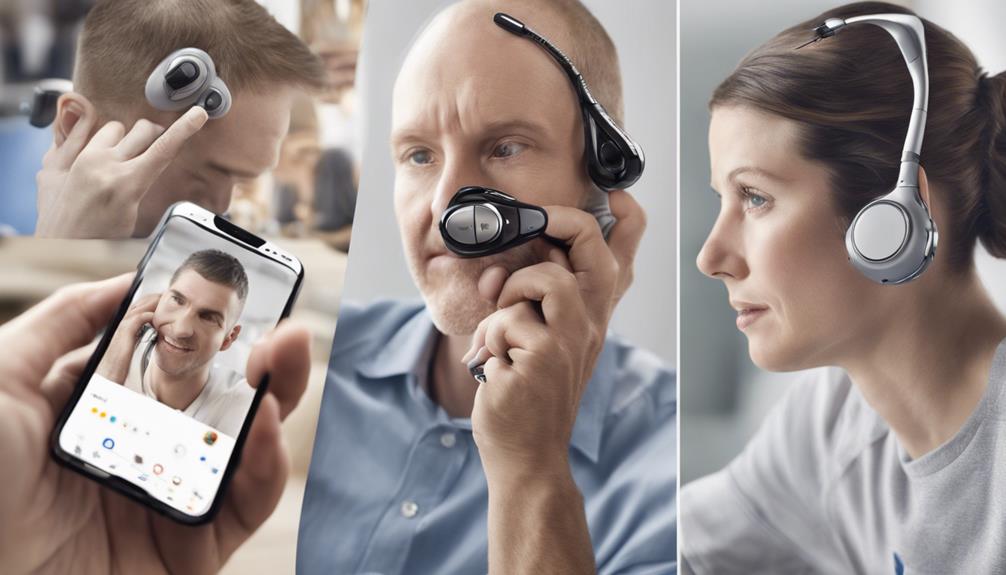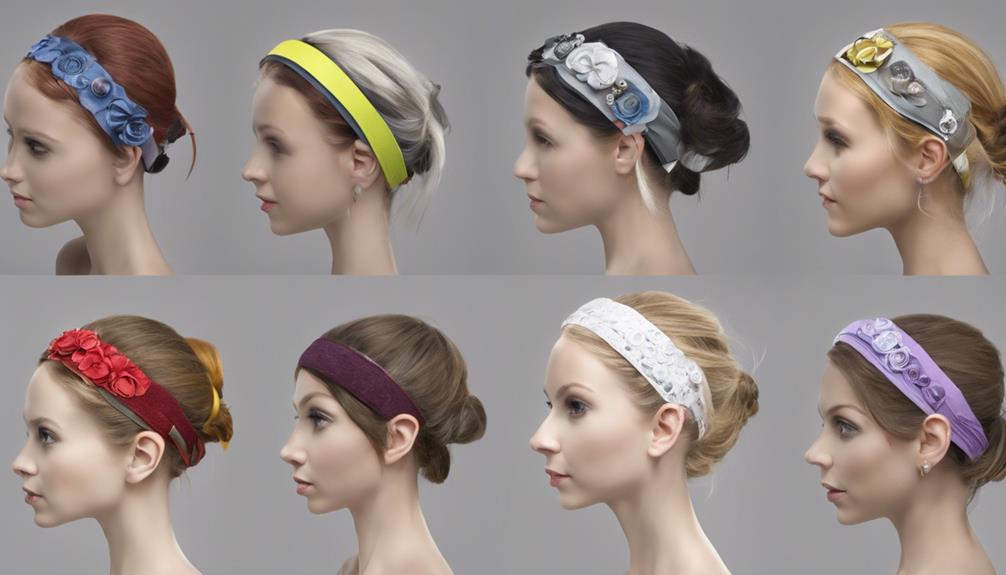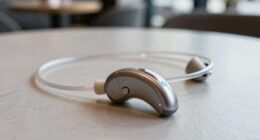Exploring the wide variety of opinions on cochlear implants, we come to a point where the truths may not be as simple as initially presumed.
As we navigate through the layers of this debate, we are confronted with contrasting viewpoints that challenge our understanding of deafness, technology, and identity.
The intricate interplay between these elements invites us to question the validity of certain statements and explore the nuances that underpin this contentious discourse.
Join us as we reflect on the complexities of the debate over cochlear implants and strive to unravel the truths that lie beneath the surface.
Key Takeaways
- Cochlear implants provide access to sound for severe hearing loss individuals.
- Concerns about eroding Deaf culture and the potential devaluation of sign language.
- High cost and limited accessibility create challenges for equitable access.
- Balancing technological benefits with preserving cultural identity is crucial in the debate.
Historical Background of Cochlear Implants
In the late 20th century, the development of cochlear implants marked a significant technological advancement in addressing severe hearing loss. For individuals who are deaf or have profound hearing loss, cochlear implants represent a groundbreaking solution that can potentially restore a sense of sound. These devices haven't only improved the quality of life for many recipients but have also sparked debates regarding cultural identity within the deaf community.
Cochlear implants have raised complex questions about the intersection of technology and identity, particularly regarding the deaf community's cultural heritage. Some argue that cochlear implants may be seen as a way to fix a perceived disability, potentially undermining the rich cultural identity and history of the deaf community. On the other hand, proponents of cochlear implants view them as tools that can bridge the gap between the deaf and hearing worlds, offering individuals the opportunity to fully engage in both communities.
The development and evolution of cochlear implants have undoubtedly reshaped the landscape of hearing loss treatment, prompting discussions about the nuanced relationship between technology, identity, and cultural belonging.
Efficacy and Impact on Hearing Loss
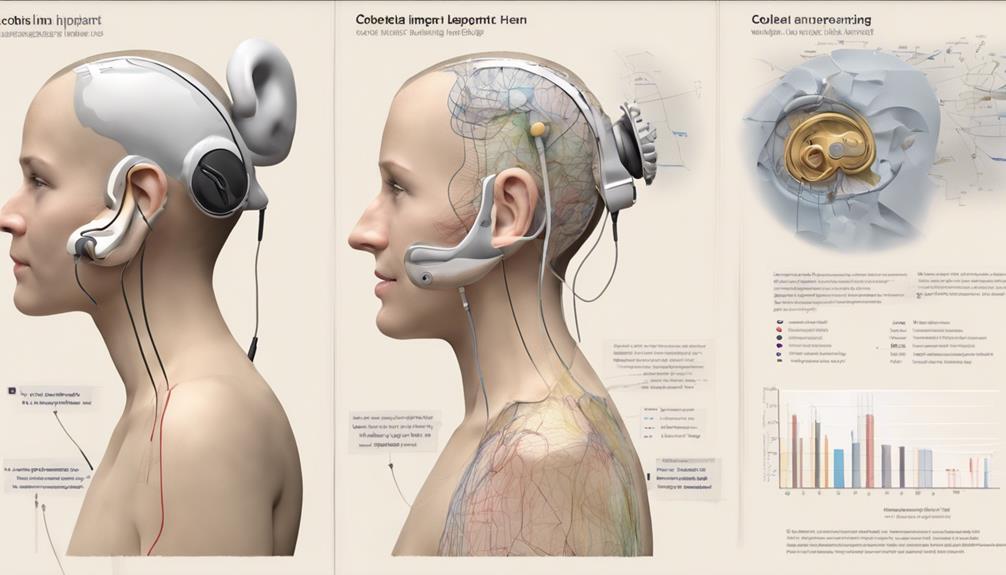
The efficacy and impact of cochlear implants on hearing loss are significant, as they've been established to provide hearing for individuals with severe hearing impairment.
- Cochlear implants offer a transformative solution for those with profound hearing loss, enabling them to experience sounds and speech that were previously inaccessible.
- By directly stimulating the auditory nerve, cochlear implants bypass damaged parts of the ear, allowing for signals to be sent to the brain and interpreted as sound.
- While cochlear implants don't restore hearing to 'normal' levels, they play a crucial role in enhancing communication abilities and improving quality of life for many individuals with severe hearing impairments.
Through the innovative technology of cochlear implants, individuals who were once isolated by their hearing loss can now participate more fully in conversations, enjoy music, and engage with the world around them. This advancement represents a significant step towards bridging the gap between the deaf and hearing communities.
Ethical Considerations and Criticisms
Considering the ethical implications and criticisms surrounding cochlear implants, the debate delves into complex intersections of identity, culture, and medical intervention. Critics express concerns that cochlear implants may erode Deaf culture by promoting assimilation into the hearing world, potentially devaluing sign language and erasing Deaf identity. There are worries about the medicalization of deafness and whether cochlear implants prioritize medical intervention over cultural preservation. Balancing the benefits of technological advancements with the preservation of individual autonomy and cultural heritage is paramount in this debate.
| Ethical Considerations and Criticisms | ||
|---|---|---|
| Cochlear Implants might erode Deaf culture | Cochlear Implants could devalue sign language | Concerns about medicalization of deafness |
Cost and Accessibility Issues

Cost and accessibility barriers pose significant challenges for individuals seeking cochlear implants, impacting their ability to access this advanced medical technology. When considering the cost implications and availability issues surrounding cochlear implants, it becomes evident that:
- The high cost of cochlear implants can create financial burdens for individuals without adequate insurance coverage, potentially limiting their access to this life-changing technology.
- Disparities in insurance coverage for cochlear implants can result in unequal opportunities for individuals with hearing loss to benefit from this treatment, depending on their insurance plans and financial means.
- Limited accessibility to specialized implant centers in certain regions can further exacerbate the challenges faced by individuals seeking cochlear implants, particularly those from lower socioeconomic backgrounds or areas with restricted healthcare resources.
Addressing these cost and accessibility issues is crucial in ensuring equitable access to cochlear implants for all who could benefit from them.
Future Developments and Research Trends
Exploring future developments and research trends in cochlear implants reveals a promising trajectory towards improving speech recognition, device longevity, music perception, wireless connectivity, and neural interfaces for enhanced effectiveness. Research efforts are concentrated on enhancing speech recognition capabilities in challenging, noisy environments to provide users with better communication outcomes.
Future developments aim to increase the longevity and reliability of cochlear implant devices, ensuring sustained benefits for recipients over time. Studies also focus on improving music perception and appreciation among individuals with cochlear implants, recognizing the importance of a holistic auditory experience.
Advancements in technology may soon offer wireless connectivity options and advanced sound processing features, further enhancing the overall user experience. Additionally, researchers are exploring the potential of neural interfaces to optimize the effectiveness of cochlear implants, potentially opening new avenues for improved hearing outcomes.
These ongoing research trends underscore a commitment to continuous improvement in cochlear implant technology, with a focus on enhancing user satisfaction and quality of life.
Frequently Asked Questions
What Is the Debate About Cochlear Implants?
The debate about cochlear implants centers on their role in addressing deafness and the impact on deaf culture and sign language.
Ethical concerns arise, particularly in children, affecting identity and community ties.
Differing opinions within the deaf community reveal ongoing controversies.
Balancing medical intervention with cultural preservation and individual choices is crucial.
The varied viewpoints in the deaf community contribute to the complex discussion on cochlear implants, identity, and communication.
What Are Some Problems With Cochlear Implants?
Some problems with cochlear implants include risks of infections and device malfunction. Ongoing maintenance and adjustments are necessary for optimal function. People with implants may feel isolated from the deaf community.
Critics argue that cochlear implants prioritize oralism over sign language, impacting cultural and linguistic identity. Despite these challenges, implants can offer life-changing benefits for many individuals.
What Are the Pros and Cons of Having a Cochlear Implant?
Having a cochlear implant can enhance hearing abilities and improve communication skills for individuals with severe hearing loss. However, risks such as infections, device malfunctions, and the need for ongoing maintenance should be considered. While cochlear implants may not restore hearing to 'normal' levels, they can significantly improve the quality of life for those with hearing impairments.
What Is One Argument in Favor of Pediatric Cochlear Implants?
One argument in favor of pediatric cochlear implants is the potential to enhance language development and educational opportunities for children with severe hearing loss.
Early implantation aims to improve social interactions and provide access to auditory information, aiding in better learning outcomes.
Conclusion
In conclusion, the debate over cochlear implants is a complex and multifaceted issue.
While they've proven to be effective in improving communication and quality of life for some individuals with hearing loss, they've also raised ethical concerns and criticisms within the deaf community.
As technology continues to evolve, it's important to consider both the benefits and drawbacks of cochlear implants in order to make informed decisions that respect the diversity of perspectives and experiences within the deaf community.





